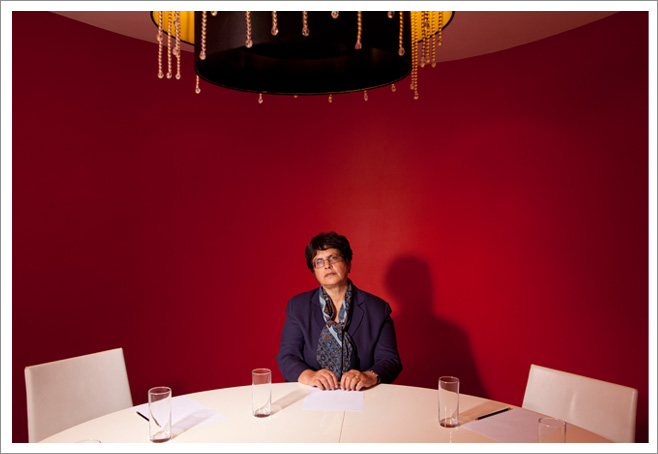BARONESS USHA PRASHAR
CROSSBENCH MEMBER OF THE HOUSE OF LORDS

"Do your job well but don't get so emotionally involved that you burn out", that's what I told myself when I left the Runnymede Trust. I became director at quite a young age and for seven years I was completely emotionally absorbed in it. By the time I left I was really quite exhausted. That was a good lesson to learn, I think.
I made a decision not to have children because I do not think that it is possible to combine both without significant help. If you have children you have to devote time to their upbringing. I made the choice to devote time to my work and make a difference in a different way.
Sometimes, we can create barriers for ourselves by being overly conscious of our difference. I've been the only woman on a great number of boards and committees. But I don't enter a room thinking, "I'm a woman, I'm the only one of my kind here." Rather than wasting too much thought on being the only woman or ethnic-minority in a professional situation, I'd rather think, "These are my skills, what can I bring to this?"
The judiciary was predominantly male and white when the Judicial Appointments Commission (JAC) was set up in 2006 and I was appointed its chairman. It was established to make the process for appointing judges more open and transparent and to widen the pool from which the applicants were drawn. The judiciary is changing but not fast enough. A judiciary that is more diverse and is reflective of the society as a whole will have greater legitimacy.
It is still true that more men than women apply. [79% of professional, full-time judges in Scotland, and 77% in England and Wales, are men] This is inevitable because there are more men than women in the legal profession. For some women, a requirement to go on circuit if one is a High Court Judge is a disincentive. It does not complement family life.
Reality, myth and prejudice all play a part. It's a complicated problem, there's no one magic wand you can wave to fix it.